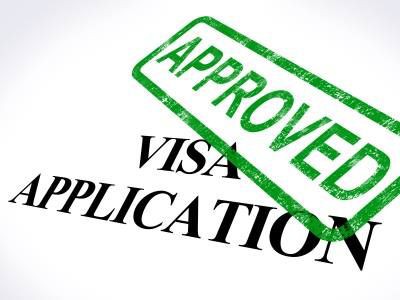Blockchain technology is increasingly being used to streamline various sectors, including visa applications. Here’s how it’s impacting the process in some countries:
1. Increased Transparency and Security
Blockchain provides a decentralized, tamper-proof ledger of transactions. For visa applications, this means:
- Transparent tracking: Applicants, as well as authorities, can track the progress of an application in real-time, reducing the risk of fraud.
- Identity verification: Blockchain ensures that identity details are immutable and securely stored, making it harder for applicants to falsify documents.
2. Faster Processing Times
Blockchain allows for the automation of verification processes, meaning:
- Instant verification: Applicants’ backgrounds (criminal records, employment history, etc.) can be verified faster by referencing blockchain records.
- Automated checks: Governments can use smart contracts to automatically trigger actions, like approvals or rejections, based on the application’s status, reducing human error and delays.
3. Reduced Fraud
One of the most significant advantages of using blockchain in visa applications is its ability to prevent fraud:
- Immutable records: All application data and supporting documents are recorded in a secure, unchangeable ledger. This makes it nearly impossible for fraudulent documents to pass through.
- Verified credentials: Blockchain allows applicants to verify academic degrees, work experience, and travel history in a way that’s faster and more secure than traditional methods.
4. Digital Identity for Global Mobility
Some countries are exploring blockchain-based digital identity systems that can be used for cross-border travel:
- One identity for multiple uses: A blockchain-based identity could be used for not only visas but also for passport information, travel authorizations, and immigration checks, all accessible securely by authorized agencies.
- Streamlined border crossings: With a digital identity tied to blockchain, travelers might not need to submit multiple documents when applying for visas to different countries, creating a more unified, seamless experience.
5. Enhanced Privacy for Applicants
Blockchain can help protect applicants’ personal information:
- Selective data sharing: Applicants can choose what data to share and with whom, offering better control over their personal information.
- No need for centralized data storage: Since blockchain is decentralized, there’s no central database that could be hacked, reducing the risks of large-scale data breaches.
Example Countries Using Blockchain for Visa Applications
- Estonia: Estonia is one of the leaders in integrating blockchain with government services, including visas. They have developed a e-residency program using blockchain to allow people from anywhere in the world to apply for visas and manage their business activities online.
- United Arab Emirates (UAE): The UAE is exploring blockchain technology to make visa processes more efficient. The Dubai government, in particular, is working on smart visas that utilize blockchain to track and verify employment and residency details.
As blockchain adoption grows, we can expect more countries to embrace this technology for visa processing, improving security, efficiency, and transparency for both applicants and governments.
Thailand’s Blockchain-Enabled eVisa System
Thailand has integrated blockchain technology into its Electronic Visa On Arrival (eVOA) system to enhance security and efficiency. In collaboration with Australian firm ShareRing, the system utilizes self-sovereign identity technology, allowing applicants to securely submit personal data and documents. This approach reduces manual verification time and bolsters protection against fraud .
Gulf Cooperation Council (GCC) Unified Visa Initiative
The GCC is exploring a unified tourist visa system, potentially leveraging blockchain for improved transparency and security. Blockchain’s features, such as timestamping and tamper-proof records, could streamline visa issuance and travel monitoring across member countries, enhancing efficiency and reducing fraud .
Palau’s Digital Residency Program
The Republic of Palau has launched a blockchain-based digital residency program known as the Root Name System (RNS). This initiative provides applicants with a digital ID, facilitating access to Palau’s digital economy and services. The program aims to diversify the nation’s economy and attract global digital citizens .
Citizenship by Investment via Cryptocurrency
Several countries now accept cryptocurrency as a form of investment for citizenship programs:
- Vanuatu: Accepts Bitcoin and Ethereum for its citizenship by investment program, offering visa-free access to numerous countries .
- St. Kitts and Nevis: Allows investments in its Sustainable Growth Fund using cryptocurrencies, providing a passport with extensive travel benefits .
- Dominica: Offers a citizenship program where applicants can invest using digital assets, with the entire process completable remotely .
Switzerland’s Crypto-Friendly Environment
Switzerland, particularly the region known as “Crypto Valley” in Zug, offers flexible visa options for blockchain professionals. The country provides clear regulatory guidelines and a stable financial environment, attracting startups and established companies in the blockchain sector .
